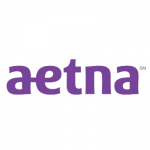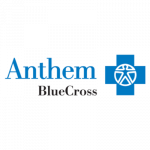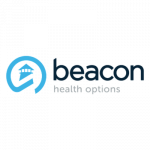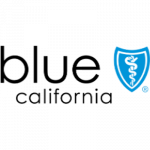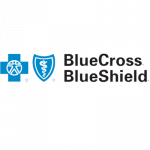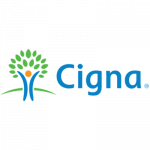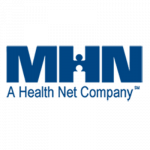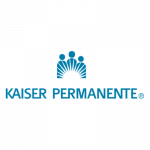Contact Admissions
Here to Help
Our Admissions Team is here to support individuals in need of eating recovery services as well as our community of dedicated providers.
Providers may reach the Admissions Team directly by emailing admissions@alsana.com or by calling 866-376-0888.

"We're committed to meeting each client where they are in their recovery journey. That includes being there, day and night, to offer guidance and support for the members of each client's support network."

Steps to admission
Five simple steps to begin the eating disorder recovery journey.
Step 1
Contact
Providers can reach our admissions team by calling 866-376-0888 or by emailing admissions@alsana.com. We’ll begin by gathering some information about your client, answering any questions you might have, and reviewing the next steps.
Step 2
Insurance Review
With the client’s consent, our team contacts their healthcare insurance provider to obtain a quote. We’ll then review this information with the client so they can make an informed decision about their treatment.
Step 3
Clinical Assessment
Our assessment specialists are masters-level clinicians. They meet with clients during the admissions process to better understand clients’ unique needs, symptoms, and diagnoses/comorbidities. This aid in the creation of each client’s unique treatment map.
Step 4
Medical Clearance
Clients must complete a medical packet (PDF), lab work, and screenings prior to admission. This can be done with a primary care provider or at an urgent care or another medical facility. Our medical and admissions nursing team will review medical information to determine the appropriate level of care that will best meet clients’ recovery current needs.
Step 5
Admission
After clinical and medical clearance, it’s time to schedule admission. For clients who are ready, we’ll select a date, help them coordinate travel arrangements, and connect them with their program director. Clients who are not ready are encouraged to take advantage of Alsana’s free Transitional Recovery Coaching services.

Admissions Process
Provide your contact information below or give our admissions team a call at (866) 376-0888
Medical records:
- Email: MedicalRecords@alsana.com
- Fax: (866)510-3601
Our Admission Office is open 24/7.
Most commonly asked
questions
Our average length of stay is 30-45 days at RTC, 45-60 days in Day Treatment (PHP), and 45-60 days in Intensive Outpatient Treatment (IOP). A client’s length of stay is dependent on their clinical needs and preferences, clinical recommendations, and approval from their insurance provider (when applicable). Prior to returning home, we recommend that clients step down to lower levels of care within the program as to provide practice in a structured environment to support their long-term success.
In our experience, insurance companies will often pay for some or even most of eating disorder treatment. However, coverage plans vary, and it’s important to get an accurate statement of benefits from the client’s insurance provider. Our admissions team will work closely with the client and their insurance company to develop a good understanding of their insurance coverage. During their treatment stay they will be assigned a Utilization Review Specialist who works closely with their insurance company to get their care authorized. Contact our admissions department and we will be happy to assist in discussing benefits with the client’s insurance company.
We accommodate vegetarianism at our facilities. Our culinary team provides creative vegetarian menu options daily. Our dietitians will work with the client to develop a vegetarian meal plan that meets their nutritional needs. The entire treatment team will partner with the client to explore if vegetarianism overlaps with their eating disorder and provide a safe and supportive environment to challenge any food beliefs that interfere with their recovery.
Alsana will work to meet clients where they are if they follow a vegan meal plan upon admission. Although we cannot promise a fully-vegan kitchen, our culinary program uses minimal animal-based products, our vegetarian menu accommodates veganism, and our sauces and dressings are made from scratch. The client’s treatment team will partner with you to explore the roots of your veganism lifestyle and if it overlaps with their eating disorder. As they progress through recovery, we provide a safe, supportive environment which explores the real-life challenges that veganism can present and help them determine if a vegan lifestyle can support their recovery.
We allow smoke breaks at scheduled times during the day. One or two caffeinated beverages per day are also allowed if meal plans are followed.
Yes, cell phones and other electronics are allowed during scheduled times.
We avoid hospitalization, IVs and tube feedings unless absolutely necessary. We do not provide IVs or tube feedings in our treatment centers. If necessary, the client will be transported to a nearby hospital and return to Alsana when they are stable. Or, Alsana will help them transfer to an inpatient eating disorder program until they are medically stable to return. Our team will work in collaboration with the client’s team at the hospital to promote continuity of care.
At our residential facilities, a structured, supportive environment is essential to stabilize a client’s symptoms. As the treatment progresses, they will have more autonomy and responsibility. We’ll integrate more activities to help them transition to life outside of treatment. They will go out for meals, groceries, and recreation. As they progress even further, they will receive passes to spend time with family members, friends, or going out on their own.
At Alsana, we bring together people with different types of eating disorders to promote a greater understanding of themselves and others. Different types of eating disorders share similarities, and this understanding fosters connection and compassion. We believe there is little benefit in separating individuals by eating disorders since this can lead to a negative effect of stigmatizing specific behaviors or groups.
Exercise and movement are an integral component of our Adaptive Care Model™ at Alsana. Our evidence-based movement program changes exercise from a compulsive behavior to a way of caring for our bodies. As part of our movement program, we help the client understand the motivation or purpose behind movement in their life and help them work toward moving and exercising for enjoyment and pleasure. We teach them to work with their body rather than against it. Our program includes fun and enjoyable activities including exercise, brain education, and low-intensity movement to help them towards sustained recovery.
As part of their treatment program and when possible, we assign clients to a primary therapists who specializes in treating chemical dependence. Additionally, there are weekly groups for chemical dependence or co-occurring disorders. Alsana also hosts 12-step meetings and can arrange for them to attend offsite meetings in the evenings and weekends if they are approved for passes.
We know that clients with family/supportive other involvement in the treatment and recovery process have better outcomes related to full, sustained recovery and strive to support and educate those who will be supporting our clients when they discharge. A few of our offerings include Weekly Support Groups, Virtual Workshops focused on psychoeducation and support, Family & Friends Intensives, a password-protected resource page for family members, and support others on our website and sessions with clients and their loved ones to focus on enhancing and strengthening those relationships.

Documentation for admissions
These documents are required by all Alsana applicants.
Blood work, urinalysis, urine drug screen, & EKG cannot be more than 14 days old at the time of admission to ensure that we provide accurate medical oversight.

Alsana is a preferred in-network provider for all major insurance companies.
